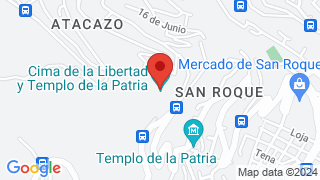Battle of Pichincha Causes and Consequences

Battle of Pichincha
The battle of Pichincha took place on May 24, 1822 in the vicinity of the Pichincha volcano. It was the battle that declared the independence of the department of Quito, also called Real Audiencia de Quito from the kingdom of Spain, thus promoting the independence of the territory that is now known as the Republic of Ecuador. At that time, the city of Quito was included within the new republic of Nueva Granada, whose main headquarters was in Bogotá, Colombia.
The battle took place on the slopes of the Pichincha volcano, very close to the population of the same name; who led and worked on the strategy of the same was General Antonio José de Sucre, who organized the battalions and soldiers available to carry out the battle against the Spaniards led by Melchor Aymerich. The independentist army, which had more than 3000 soldiers, surpassed in only 3 hours of combat the largest and best equipped Spanish army.
The independence conquest of Quito achieved the liberation of the provinces that belonged to the Real Audiencia de Quito, which were in command of the Spanish crown; from this arises what we know today as the Republic of Ecuador.
Causes of the Battle of Pichincha
Quito was the first city in present-day Ecuador to declare its separation from Spain in 1812, because of which it was occupied by the Realist army, while Ecuador's other two major cities, Guayaquil and Cuenca continued to be dominated by Spain.
South America's independence movement had begun a few years earlier, led by figures such as Simón Bolívar to the north and José de San Martín to the south. This motivated settlers and soldiers in many cities and regions throughout the subcontinent to organize and promulgate the ideas of liberation. On August 7, 1819, the battle of Boyacá was fought, led by Simón Bolívar and Francisco de Paula Santander, whose triumph marked the independence of the viceroyalty of Nueva Granada from Spain, something that influenced the battle of Pichincha.
In the midst of this libertarian environment, the occupation by the Spanish royalists of Quito took place on May 14, 1822, which was a provocation to the patriots who had declared in that city the separation from Spain in 1812. It is from this action that the battle of Pichincha begins.
Consequences of the battle of Pichincha
Among the main consequences of the battle of Pichincha are:
- The capitulation signed by the Spanish general Melchor Aymerich and Antonio José de Sucre, general of Gran Colombia, in which the Spanish forces hand over their weapons to the army of Gran Colombia.
- With the surrender of the realistic Spanish army to the independence troops in Pichincha, the patriots were able to enter Quito triumphantly and definitively declare independence.
- The department of Quito was annexed to the New Granada, from May 29, 1822, at that time governed by Simón Bolívar.
- They captured a great part of the war material of the realists that helped to follow the independence campaign.
- This battle served as an impulse to continue the process of independence of the territory. Guayaquil was liberated from the power of the kingdom of Spain, on July 13, 1822.
- A total of 600 dead, 400 for the Spanish forces and 200 for those of the army of Gran Colombia.
- After this, the army of Gran Colombia was able to concentrate on eliminating the Spanish army from the territory, thus making possible the independence of Peru.
Importance of the Battle of Pichincha
The battle of Pichincha was full of meaning, symbolism of patriotism thanks to the fact that it lies in what defined the independence of the first and most important city in Ecuador, Quito. In addition, the symbolism that meant the defeat of the realist forces and the surrender before the independence forces, together with the weakening of these from this battle allowed different territories to achieve their independence.
Characters from the Battle of Pichincha
Among the main characters who stood out during this battle we can find the following.
- Antonio José de Sucre: (1975 - 1830) Principal General of the army of Gran Colombia, great military politician and hero of the independence of several countries of America.
- Andrés de Santa Cruz: (1972 - 1865) Together with Sucre, he was another of the generals in command of the army. Important political participant of the independence movements of America.
- Melchor Aymerich: (1754 - 1836) Spanish military commanding the Spanish Realist army during the battle of Pichincha.

Publicado en:
Publicado por:




